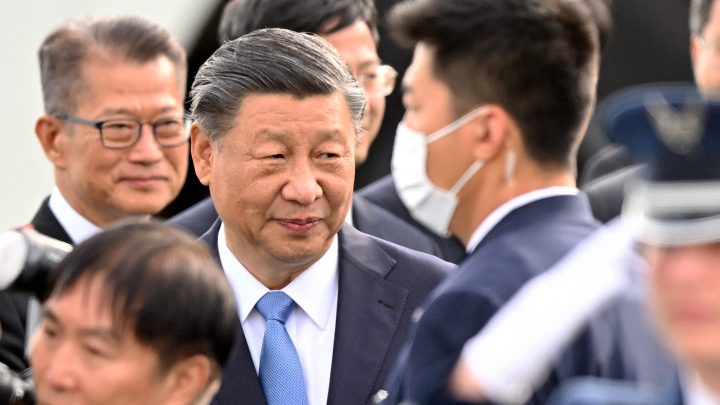
Biden and Xi likely to discuss semiconductor dispute at APEC
Biden and Xi likely to discuss semiconductor dispute at APEC

U.S. President Joe Biden and China’s President Xi Jinping will meet face-to-face on Wednesday and will have plenty to talk about, from communications between military forces to restrictions on components of semiconductors.
The Asia-Pacific Economic Cooperation forum brings together leaders of 21 economies in the Pacific region, including representatives from Hong Kong and Taipei, alongside those from the People’s Republic of China. The idea behind the grouping is to promote free trade across the Pacific region.
But over the past few years, China and the U.S. have been putting up trade barriers like tariffs, instead of taking them down. China has called the tariffs on a range of consumer goods “discriminatory.”
One item likely to be high on the agenda is the tit-for-tat trade spat over semiconductors.
“China’s spending tens of billions of dollars a year trying to domesticate an industry that, in the past, has been spread over multiple different countries. And that has catalyzed policy responses from other governments,” said Chris Miller, author of “Chip War.”
“So, for example, the U.S. has decided to restrict the transfer of AI chips, the types of chips that are used in training AI systems to China,” Miller said.
The U.S. says it introduced these controls because of national security concerns and not because it wants to maintain an economic advantage.
“I think when you talk to government officials, they are laser-focused on the security implications of advanced chips and the types of AI capabilities that they enable,” said Miller. “The challenge is that the exact same chips that are used to train AI with civilian implications can also be used to train AI with military implications or intelligence applications. There’s just no way of differentiating.”
Miller added that he doesn’t see a resolution to tensions between the U.S. and China magically coming out of their meeting APEC. After all, both countries want to get ahead: President Xi has pressed for China’s self-sufficiency in the semiconductor space, while the U.S. has outlined the importance of boosting chip production.
“Despite the Xi-Biden meeting, which I fully expect to have lots of press releases that make it sound like the relationship is getting better, the reality is there’s a pretty zero-sum competition here for which country is going to be the world’s technology leader,” Miller said. “And I think it would be naive to count too much on a single summit to defuse that basic competitive dynamic.”
There’s a lot happening in the world. Through it all, Marketplace is here for you.
You rely on Marketplace to break down the world’s events and tell you how it affects you in a fact-based, approachable way. We rely on your financial support to keep making that possible.
Your donation today powers the independent journalism that you rely on. For just $5/month, you can help sustain Marketplace so we can keep reporting on the things that matter to you.
















